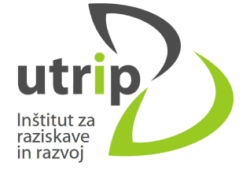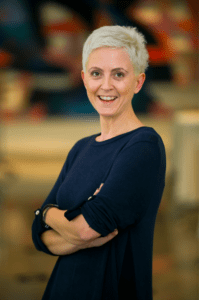UTRIP Interview for Brazilian Observatory on Drugs
 The Brazilian Observatory on Drugs (OBID) recently interviewed Ms. Sanela Talić, director of prevention programs at UTRIP. The Institute for Research and Development, UTRIP, is a member organization of Movendi International.
The Brazilian Observatory on Drugs (OBID) recently interviewed Ms. Sanela Talić, director of prevention programs at UTRIP. The Institute for Research and Development, UTRIP, is a member organization of Movendi International.
Following is a summary of their interview, covering topics such as what prevention is, to the effectiveness of prevention and the positive outcomes of evidence-based prevention.
What is prevention?
The definition of “prevention science” by Science for Prevention Academic Network (SPAN) fully embraces the role of this field.

Sanela Talić, Director of Prevention Programs at UTRIP
It is a very rich field in terms of combination and use of the knowledge of many disciplines to consider aetiology, epidemiology, intervention design, effectiveness and implementation for the prevention of a variety of health and social problems.
The focus is on behaviour as a determinant of ill-health and health inequality. Behavioural risk factors are important causes of Non-Communicable Disease.
What is prevention in the field of drug addiction?
Prevention in substance use (including alcohol, tobacco and other drugs) is a scientific approach to prevent people from initiation of substance use and help those who have already started to avoid developing problems.
How can prevention contribute to avoiding drug addiction?
Shortly, the negative health outcomes (also those resulting from substance use) can be prevented by reducing risk factors (e.g. laws and norms that are favourable toward behaviour, the availability of alcohol, tobacco …), some personal characteristics like poor impulse control, lack of parental discipline, poor academic achievement etc.
Besides this, substance use prevention has broader intent – to help people realize their potential and talents and keep them safe and healthy.
As it cannot be known what risk factor or combination of risk factors will lead to substance use, focus should be on systematic prevention (from a child’s early age on to different environments), for a positive impact of prevention efforts.
Which types of prevention can be applied to different demographic groups?
All people go through the process of socialization, learning norms and customs in different environments. The aim of prevention science is the synergy of prevention efforts in all these environments – schools, families, communities, workplaces and then there is also media-based and environmental prevention.
Which are the characteristcs of efficient prevention systems?
Speaking from experience, there is a bigger focus on prevention programmes, their adaptations, education in the field of prevention science etc. and lesser on “prevention systems” (sustainable infrastructure, funding, professionalization etc).
There are many factors in assuring quality prevention systems, but no information is valuable if it is not implemented in practice.
Is it worth, the cost of prevention?
There are many studies on cost-benefits of prevention efforts. Many of these studies emphasize the importance of supporting effective prevention programs as part of a comprehensive substance use prevention strategy.
WHO reports that non-communicable diseases kill more than 36 million people each year and 80% of these diseases share four preventable behavioural risk factors – tobacco use, alcohol use, physical inactivity and unhealthy diets. The latest article in The Lancet shows us that $143 billion annual costs in Europe is due to alcohol use.
There are some estimations that show us that benefit-cost ratio for prevention varies from $4 up to $56 for every $1 invested in evidence-based prevention.
How long can a prevention programme present positive outcomes?
It is important to work systematically from the early years on and take into account different developmental stages of children. For example, the school based prevention programme Unplugged (3 months) has shown some positive results in terms of alcohol use and smoking. But the post tests revealed results are not retained for a long time.
Prevention should be considered as a process not destination. Within this process the needs of a specific community, its capacities, opportunities are learned and monitoring and evaluation is an important aspect to learn, improve and grow.
What motivates you to work in the field of prevention?
First, it [prevention] offers tools, approaches, and knowledge that can be used in practice and can have an impact on the most vulnerable groups of our society.
Second, prevention science brings together knowledge from a variety of disciplines such as psychology, policy development, media literacy etc. This means you never stop learning.
How can OBID contribute to your work?
The best way would be to follow our work. This platform can serve as good place for sharing our activities, work and results and promote our work in other cities as well.